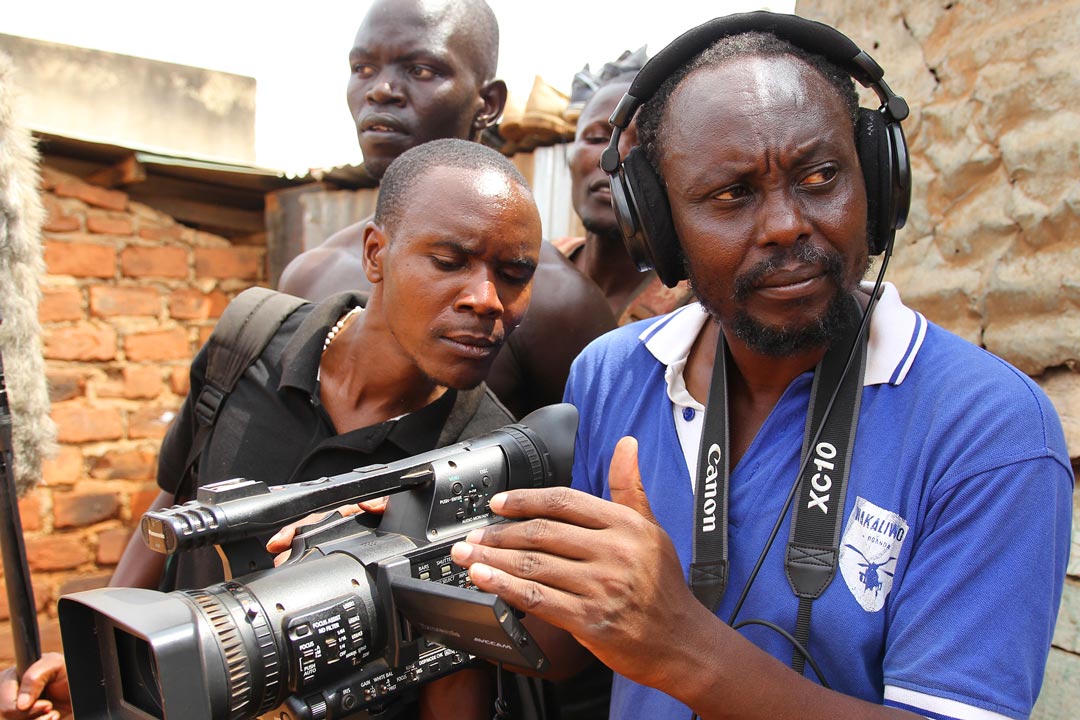
Ugawood, Pearl Magic, KinaUganda, Kateemba, and the like… Uganda’s Film Industry. For many of us young people, this is a running joke. I mean, ask any Gen-Z, and I promise you will rarely find anyone proudly saying they enjoy Ugandan movies. Ejjiini Lye’ntwetwe or those action movies where the hero slaps bullets back at their rival? Not to mention, the watermelon chasing people and other witchcraft-themed movies. “Why would I watch that?” they’ll laugh before switching back to a Hollywood blockbuster or a Nollywood hit. And I’ll admit, I am not a fan myself.
But then again, I asked myself; “Why is our film industry struggling to earn respect? Why do our movies seem to lack significantly in quality and script? Why don’t we feature on global platforms like Netflix? Is it that they don’t know we exist—or are we holding ourselves back?
Well, there’s more to the story than meets the eye.
First off, what exactly is Uganda’s film industry? Over the past two decades, the Cinema of Uganda—informally known as Ugawood—has showcased raw talent and passion but has also grappled with significant challenges. For many Ugandans, the early days of cinema were dominated by Kateemba productions: absurd storylines like fruits chasing people, poor visual effects, and overly dramatic acting.
Uganda’s entertainment scene at the time leaned more toward comedy skits, live theatre performances, and the iconic Bina-Uganda plays, with groups like The Ebonies leading the charge. While entertaining, these laid a foundation that didn’t quite evolve into a polished film industry—at least, not initially.
Recently, however, anyone who has watched Pearl Magic can attest that Ugandan films has made significant strides in scriptwriting, production quality, and delivery. TV Shows like Sanyu, Sesiria, and Half London have been eye-openers, showcasing the industry’s growth. Believe it or not, Uganda’s film industry has had some notable achievements that prove its potential.
Award-Winning Productions.
Films like Loukman Ali’s The Girl in the Yellow Jumper made it all when it premiered on Netflix, officially becoming the first Ugandan film to feature on the streaming platform. Meanwhile, Koni: Order From Above earned recognition for tacking on the story of rebel leader Joseph Koni and the LRA, It even came tantalizingly close to making it onto The Oscars shortlist.
Global Recognition.
Documentaries like Call Me Kuchu, which explored the LGBTQ+ theme in Uganda, earned international recognition, winning the GLAAD Media Award for Outstanding Documentary. Similarly, Donald Mugisha‘s Boda Boda Thieves tells the story of a 15-year-old Abel, who takes on his father’s Boda Boda hustle to provide for his family.
Growing Local Platforms like Pearl Magic thanks to MultiChoice Uganda, are empowering Ugandan filmmakers and industry professionals the chance to showcase their work to a local audience.
However, for every success story, Uganda’s film industry faces a long list of challenges that slow down growth and make progress frustrating.
Lack of Funding.
Making movies costs money—lots of it. We see these Hollywood products with budgets exceeding millions in dollars, but unfortunately, Uganda doesn’t have such significant investments in its film industry. For most Ugandan filmmakers, there’s little support from the government or private sectors, leaving creatives to rely on their pockets or shoestring budgets. The result? Poor production quality, rushed storylines, and limited reach.
Marginalized by Local Audiences: The reality is that most Ugandans gravitated toward foreign films. Hollywood blockbusters dominate cinemas, while Nigerian Nollywood dramas flood our television screens. The reason? They have bigger budgets, superior production, and polished storytelling. Consequently, many local viewers dismiss Ugandan films without giving them a chance.
Skill Gaps: While Uganda has raw talent, there’s still a gap in professional training and adherence to industry standards. From scriptwriting to sound editing, many filmmakers lack the technical expertise and resources to compete on a global scale.
Poor Marketing and Distribution: Even with quality films being produced, Ugandan films struggle to reach audiences. Platforms like Netflix, Amazon Prime, and Showmax demand high production values and compelling storytelling—benchmarks that many Ugandan films are still working to meet.
The Piracy in Uganda: Piracy is rampant in Uganda, causing many filmmakers to lose potential revenue as their work is shared illegally. This widespread issue discourages further investment in the industry.
Western Influence: A Blessing or a Curse? You can’t ignore the influence of Hollywood and other global film industries. On one hand, they set the bar for storytelling, production, and distribution, giving our filmmakers something to aspire to. Western films inspire creativity and push filmmakers to dream bigger.
But on the other hand, they’re stiff competition. Hollywood movies dominate local cinemas, overshadowing Ugandan productions. Digital streaming platforms like Netflix are flooded with international content, making it harder for local films to stand out.
How to fix these?
Financial Support: The government and private sector need to step up by providing financial and other forms of support to the creative industry. Grants, loans, and film incentives could make a significant difference.
Skill Development: There is a need for more film schools, workshops, and training programs to enhance the technical skills of Ugandan filmmakers.
Support Local Content: Ugandans should embrace and support local films. Let’s give homegrown productions a chance, celebrate their efforts, and offer constructive feedback to help them improve and grow.
Better Marketing and Distribution: Filmmakers should focus on telling quality, relatable stories and learn to market their work globally. Digital platforms, film festivals, and collaborations can help Ugandan films reach wider audiences.
To sum it up, in my humble opinion, the Ugandan film industry isn’t as bad as it’s often made out to be. The talent is here, the passion is undeniable, and the potential is endless. With better funding, training, and a welcoming audience, Ugandan cinema could easily hold its own against Nollywood.
1 thought on “Is Ugawood just Kateemba? Uganda film industry”
Pingback: 7 Best Ugandan Documentaries and Films to Watch - Nymy Net